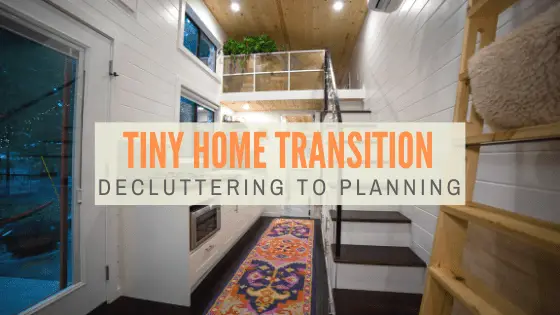Imagine living in a cozy little haven, where every corner of your home is carefully designed and perfectly utilized. That’s the beauty of a tiny home – it offers the chance to downsize and simplify your life, leaving behind the unnecessary clutter and expenses of a larger house. However, this popular minimalist trend does have its drawbacks as well. In this article, we will explore the pros and cons of downsizing to a tiny home, giving you a comprehensive insight into whether this lifestyle is the right fit for you. So, grab a cup of tea, sit back, and let’s embark on this journey together!
Advantages of Downsizing to Tiny Home
Affordability
One of the biggest advantages of downsizing to a tiny home is affordability. Tiny homes are significantly cheaper to build or purchase compared to traditional houses. The lower upfront costs make it a more accessible housing option for many individuals and families. Additionally, tiny homes have reduced utility bills due to their small size, leading to long-term savings. For those who are able to build their tiny home with cash, there is also the potential to have little or no mortgage, further reducing expenses and financial stress.
Sustainability
Another major advantage of living in a tiny home is the sustainability aspect. Tiny homes have a reduced carbon footprint compared to larger houses. The smaller size means less energy consumption, which contributes to a more environmentally friendly lifestyle. Additionally, tiny homes often incorporate eco-friendly features such as solar panels, rainwater harvesting systems, and composting toilets. With their limited space, tiny homes also encourage a more self-sufficient lifestyle, with residents growing their own food and reducing reliance on external resources.
Lower Maintenance
Living in a tiny home means less cleaning and organizing. With limited space, there is less room for clutter and excess belongings. This makes it easier to keep the living area clean and tidy. Additionally, the reduced square footage means lower repair and maintenance costs. Tiny homes often require less maintenance overall, as there are fewer systems and areas to maintain.
Simplified Lifestyle
One of the main draws of downsizing to a tiny home is the opportunity to simplify your lifestyle. With limited space, you are forced to prioritize your belongings and keep only what truly matters. This can be a liberating experience, as you let go of material possessions that may have been weighing you down. By focusing on experiences rather than accumulating stuff, you can have more time and freedom to do the things you love. The simplified lifestyle that comes with living in a tiny home can bring a sense of peace and fulfillment.
Energy Efficiency
Tiny homes are known for their energy efficiency. The small size means less space to heat and cool, resulting in lower energy consumption. This translates to reduced heating and cooling expenses, which can save you money in the long run. Additionally, the materials used in the construction of tiny homes are often chosen for their energy-saving properties. From insulation to windows, every aspect of a tiny home is designed to maximize energy efficiency and minimize the impact on the environment.

Disadvantages of Downsizing to Tiny Home
Limited Space
One of the main disadvantages of living in a tiny home is the limited space. With a smaller footprint, there is less room for belongings, furniture, and personal items. This can be challenging for individuals or families who have accumulated a lot of possessions over the years. It requires careful planning and organization to make the most of the available space. Additionally, the limited space can make it difficult to entertain guests or have large gatherings, as there may not be enough seating or room for everyone.
Lack of Privacy
Living in a tiny home can also result in a lack of privacy. With limited separation from others, it can be challenging to find alone time or have personal space. This can be especially difficult for individuals who value their privacy or need quiet time to recharge. The close proximity to neighbors or family members can also lead to potential noise disturbances, making it challenging to relax or concentrate.
Minimal Storage
Another drawback of living in a tiny home is the minimal storage available. With limited space, there may not be room for all of your possessions. This can require downsizing and getting rid of items that are not essential. While this can be a positive aspect for some, as it encourages a minimalist lifestyle, it can also be challenging for those who have a lot of sentimental items or hobbies that require additional storage space.
Difficulty Accommodating Guests
Tiny homes are not designed to accommodate large groups of guests. With limited space and seating, having friends or family stay over can be challenging. It may require creative solutions, such as utilizing outdoor spaces or convertible furniture, to provide sleeping arrangements for guests. This can be a drawback for individuals who enjoy hosting gatherings or having overnight visitors.
Zoning and Legal Restrictions
Living in a tiny home can also be hindered by zoning and legal restrictions. Many areas have regulations that limit where tiny homes can be parked or located. Zoning regulations and building codes may also impose certain limitations or requirements when it comes to the construction and placement of tiny homes. Additionally, financing and insurance for tiny homes can be more challenging to obtain, as they may not fit within traditional lending or coverage guidelines.
In conclusion, downsizing to a tiny home comes with its own set of advantages and disadvantages. From affordability and sustainability to simplified living and energy efficiency, there are many benefits to embracing a minimalist lifestyle. However, limited space, lack of privacy, minimal storage, difficulty accommodating guests, and zoning and legal restrictions are some of the drawbacks to consider. Ultimately, the decision to downsize to a tiny home should be based on personal preferences, lifestyle goals, and willingness to embrace a more compact and simplified way of living.


